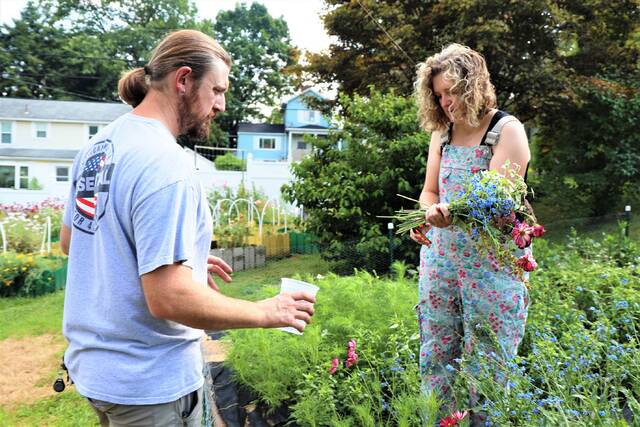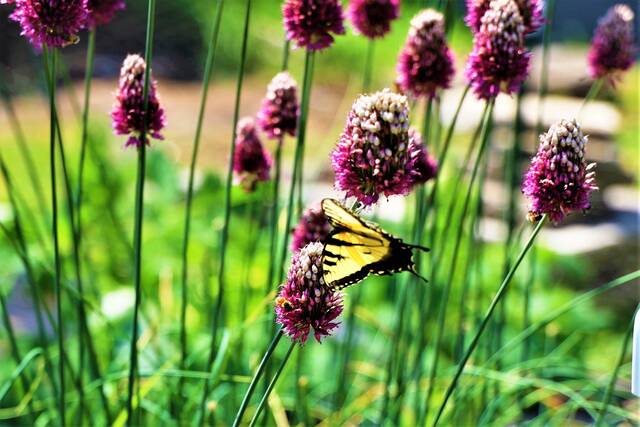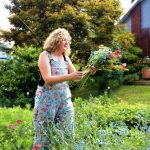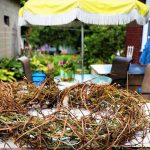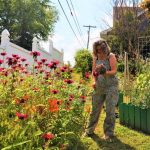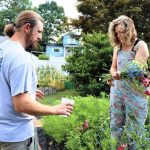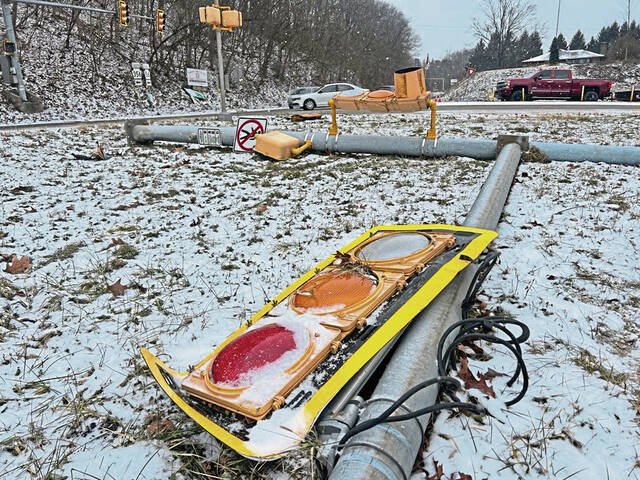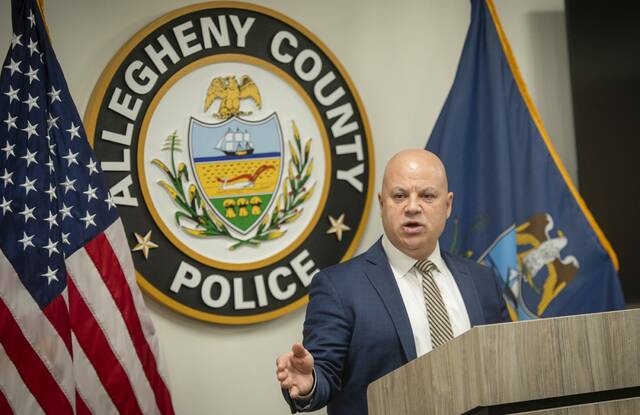For as far back as she can remember, Andrea Woodhall has been captivated by the spectrum of color, fragrance and intricate detail waiting to be discovered in a field of flowers.
But until the Oklahoma Borough woman decided to transition out of a career in photography in 2019, she never considered that her passion for cultivating and arranging flowers could be used to earn a living.
After more than a year of work converting her backyard into a flower-growing operation, Woodhall has launched Luna Joy Flower Farm.
“I think the first time I ever saw a flower, I fell in love with them,” said Woodhall, 44. “When I was a little girl, my favorite thing to do was create flower bouquets to make people happy.”
Woodhall said much of what she has learned about cultivation came from tending the gardens around her childhood home in Elk County with her mother and grandmother.
“I spent a lot of time working in the gardens and playing in the woods behind our house,” she said. “It was a wonderful experience, and I learned so much about gardening and nature.”
Woodhall supplemented the knowledge passed down from her family by becoming a certified Penn State Master Gardener.
“It’s a really great program, but honestly, the best part about it is the people involved,” she said. “I’ve met people with so much experience who have been kind and generous about sharing what they know.”
Woodhall, who earned a degree in fine arts from Edinboro University, moved to the Pittsburgh area to work as a photographer after graduation.
She said the decision to leave photography was bolstered by a desire to spend more time at home raising her young son, Sawyer, 6, and a chance to shed the confines of spending most of her work hours indoors.
“I decided that if I was going to do something outside of photography, then it was going to involve flowers because it’s something I’ve always loved to do,” she said.
The marketing and business experience Woodhall gained in college and as a photographer provided the foundation to operate a business.
But she wanted to learn more about the specifics of running a flower farm before venturing out, she said.
“I learned about Floret (flower) Farms through Chip and Joanna Gaines’ Magnolia Network,” Woodhall said. “Seeing how that farm operates helped me believe that I could actually do this. So I took their online course, which provided much greater detail.”
With help from her husband, Devin Woodhall, 43, the backyard vegetable garden and most of the surrounding land was converted into a flower-growing operation.
At first glance, Woodhall’s property at the corner of Hancock and Orr avenues could easily be mistaken for just another pretty little garden.
And while it is both little and pretty, it’s much more.
Woodhall has created a space to cultivate flowers the same way food is grown in micro gardens that utilize containers and raised beds to produce high yields in tight spaces.
“The challenge of micro farming is to put as much in one place while being environmentally conscious,” she said.
The type of flowers that are grown must be rotated to prevent the soil from being sapped of nutrients. Flowers also must be planted on a schedule that ensures there is enough to meet demand throughout the growing season.
“We don’t use any pesticides and only natural things, such as manure, to treat the soil,” she said. “We also make sure that there are a lot of native perennials because that’s important for the bees. It’s important to me that I give back to the environment while I’m pursuing this.”
Woodhall said customers who buy locally grown flowers not only support the local economy, they help the environment by saving the energy needed to ship flowers from large commercial growers in other parts of the U.S. and Central and South America.
To help promote the economic and environmental benefits of staying local, Woodhall is focusing on a concept known as Community Supported Agriculture, or CSA, which can help small farms survive by ensuring they don’t produce more than can be sold.
CSA operates like a subscription service in which customers make an upfront financial commitment to support a farmer.
“This has been used to help farmers cover the cost of seed and other expenses at the start of the growing season by guaranteeing that they‘ll have customers for the food they produce,” Woodhall said.
Woodhall applies the CSA concept to her business by selling weekly subscriptions for fresh-cut bouquets and arrangements.
“I think people are receptive to the idea because it helps support local businesses and family farms,” she said. “Giving flowers is also a gesture of kindness that says you are thinking about someone and want to make them smile. So getting a subscription for someone else is a great way to express those feelings.”
Woodhall has started holding pop-up events at area businesses and community gatherings to sell flowers and promote the CSA concept.
Karen Heilman, co-owner of the 1833 Coffee & Tea Co. in Freeport, recently held a pop-up event at the shop featuring Luna Joy Flower Farm.
“Andrea set up a table of bouquets at the shop on a Saturday morning and quickly sold out because she does such beautiful work,” she said. “We love to promote any local business, especially if it’s one owned by a woman, that we think works well with what we are doing here in Freeport.”
Luna Joy Flower Farm’s will have a booth at the Vandergrift Artfest on July 31. Woodhall can be contacted by email at lunajoyflowerfarm@gmail.com.





